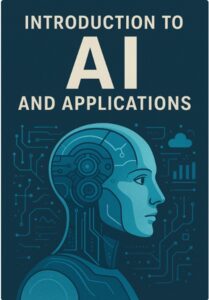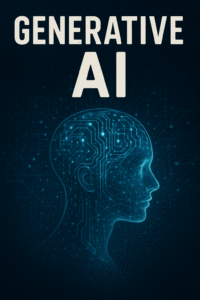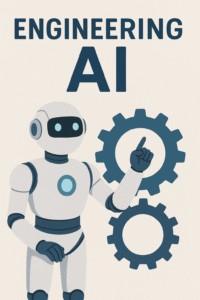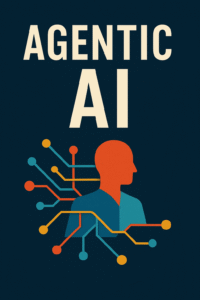“Everyone tries to exploit context, but context is like God—it follows its own path beyond human control.”
Category: Artificial Intelligence
Road Map to become Prompt engineer
In the rapidly evolving landscape of Artificial Intelligence (AI), large language models (LLMs) have emerged as game-changers, pushing the boundaries of what was once thought possible. These powerful models, such as GPT-3, DALL-E, and ChatGPT, have captured the imagination of both the tech industry and the general public with their ability to generate human-like text, images, and even code.
However, to fully harness the potential of these LLMs, a new breed of professionals has risen to the forefront: prompt engineers. Prompt engineering is the art and science of crafting effective prompts or instructions that guide these models to generate desired outputs. As the demand for AI solutions continues to grow across industries, the role of prompt engineers has become increasingly crucial.
The Road Map to Becoming an AI Engineer
Artificial Intelligence (AI) is one of the most exciting and rapidly evolving fields in technology today. As businesses increasingly leverage AI to drive innovation and efficiency, the demand for skilled AI engineers continues to grow. Whether you’re a newcomer to the field or a seasoned developer looking to specialize in AI, following a structured roadmap can help you navigate the complex landscape of technologies and concepts essential for success. Here’s a comprehensive roadmap to guide you on your journey to becoming an AI engineer:
What is Devin?
In today’s tech world, where artificial intelligence (AI) is a big deal, there’s a new AI called Devin shaking things up. Devin is like a super-smart computer engineer created by a company called Cognition. It’s not like other AIs – Devin can do a lot more than just suggest code. It can plan, analyze, and do all kinds of coding tasks by itself. Imagine giving Devin a job, and it just gets it done, like a human engineer but faster and smarter.
Essential Skill Sets to Work with AI Machines like Devin
What is Devin? In the ever-evolving landscape of technology, the integration of artificial intelligence (AI) machines like Devin promises to…
AI won’t take your job, it’s somebody using AI that will take your job.
In today’s rapidly evolving digital landscape, discussions about the impact of Artificial Intelligence (AI) on the workforce abound. While fears of job displacement often loom large, it’s crucial to recognize that AI is not the enemy of human employment. Rather, it’s the way AI is wielded by individuals and organizations that determines its impact. As Logan Kilpatrick astutely noted, “AI won’t take your job, it’s somebody using AI that will take your job.” Moreover, Kilpatrick’s assertion that individuals will become “10x more valuable in the coming years” underscores the transformative potential of AI in enhancing human capabilities and productivity.
Exploring the Hypothetical: English as a Programming Language
In the ever-evolving landscape of technology, the prospect of English becoming a programming language sparks curiosity and intrigue. While this notion may seem unconventional, imagining English as a programming language offers a unique opportunity to explore its implications, challenges, and potential advantages. In this article, we delve into this hypothetical scenario by presenting five sample programs in English-like pseudocode, followed by their equivalent implementations in Python. Furthermore, we perform a comparative analysis to highlight the differences and similarities between the two approaches.
Understanding 10 Types of AI and Their Impact on Cultivating a Peaceful Mind
In the digital age, Artificial Intelligence (AI) stands as a transformative force with diverse applications across various domains. When it comes to mental well-being, different types of AI hold the potential to promote inner tranquility and foster a peaceful mind. In this article, we delve into ten types of AI, exploring their unique characteristics, potential impact, and illustrative use cases in cultivating a sense of peace and harmony.
Exploring the Impact of Generative AI on Human Creativity
In the realm of technological innovation, Generative Artificial Intelligence (AI) has emerged as a transformative force, reshaping the landscape of human creativity. Far from being a threat to artistic expression, generative AI serves as a powerful tool that enhances and expands the creative potential of the human mind. By leveraging advanced algorithms and vast datasets, generative AI opens new frontiers of imagination, collaboration, and innovation. In this article, we delve into the profound impact of generative AI on the creativity of the human mind.
A Deep Dive into Peaceful Minds, Buddha’s Teachings, and the Influence of Artificial Intelligence
In the relentless pursuit of a meaningful and balanced life, we often find ourselves on a quest for inner peace. Today, let’s explore the profound teachings of Buddha, unravel the characteristics and advantages of a peaceful mind, delve into the concept of discipline, and understand how meditation, yoga, personal skills, and artificial intelligence contribute to transforming the mind into a sanctuary of tranquility.
Exploring Generative AI for a Peaceful Mind
Generative Artificial Intelligence (Generative AI) has emerged as a powerful force, not just in transforming industries and creating innovative content, but also in contributing to our mental well-being. This article delves into the ways Generative AI fosters a peaceful mind by facilitating creativity, providing therapeutic outlets, and offering novel experiences that inspire tranquility.
Artificial Intelligence for Peaceful Mind
In an era dominated by technological advancements, artificial intelligence (AI) has emerged as a powerful force shaping various aspects of our lives. While its impact is undeniable, there is a growing recognition of the need to harness AI for the betterment of our mental well-being. This article explores the role of artificial intelligence in promoting a peaceful mind, emphasizing the positive contributions it can make to mental health and overall serenity.
10 Evolving Stages of Artificial Intelligence
Artificial Intelligence (AI) has emerged as a revolutionary force, poised to redefine the boundaries of technological innovation and transform our world in unprecedented ways. In this exploration, we embark on a journey through the 10 evolving stages of AI, each representing a remarkable leap forward in the capabilities and potential impact of artificial intelligence.
The Ebb and Flow of Artificial Intelligence: Navigating the Seasons of AI Winter and AI Summer
Artificial Intelligence (AI) is a field marked by cycles of excitement, innovation, and occasional disappointment. The metaphorical seasons of AI,…
Small Language Models
Small Language Models (SLMs) refer to a class of artificial intelligence models that have emerged as an alternative to the large language models (LLMs) such as GPT-3. While LLMs, with their massive parameter sizes (e.g., GPT-3 with 175 billion parameters), exhibit impressive capabilities in generating human-like text and performing various language tasks, there are concerns related to efficiency, cost, and customizability associated with their large size. SLMs address these concerns by being smaller in terms of model size, typically considered to have fewer than 100 million parameters, and offer advantages in efficiency, cost-effectiveness, and customizability.
Conscious, Contextual, Responsible, and Ethical Artificial Intelligence: Shaping a Positive Future
Artificial Intelligence (AI) has become an integral part of our daily lives, revolutionizing industries and transforming the way we interact with technology. As AI continues to advance, the importance of integrating consciousness, contextuality, responsibility, and ethics into its development and deployment becomes increasingly evident. In this article, we will explore the significance of conscious, contextual, responsible, and ethical AI and its applications in fostering a positive and sustainable future.
Ethical Deepfake
“Ethical deepfake” refers to the responsible and conscientious use of deepfake technology, a form of artificial intelligence (AI) that involves creating highly realistic and often indistinguishable synthetic media. Deepfakes typically involve the manipulation of images, videos, or audio recordings using advanced machine learning algorithms.
Ethical considerations in the context of deepfakes revolve around using this technology in a manner that aligns with moral principles, respects individuals’ rights, and avoids causing harm or deception.
How Quantum Computing Enhances Contextual Intelligence in AI
In the ever-evolving landscape of technology, two groundbreaking fields, quantum computing and artificial intelligence (AI), are converging to create possibilities…
What is “Generative Context” ?
At its core, Generative Context is an ecosystem that cultivates creativity, fosters collaboration, and encourages experimentation. It goes beyond the conventional frameworks and restrictive norms to create a space where ideas can thrive and flourish. Generative Context sparks curiosity, values diversity, and embraces a growth mindset, empowering individuals to think beyond boundaries and seek novel solutions to complex challenges.
Why Chat GPT is Not Yet Context and Conscious Aware?
Artificial Intelligence (AI) has made significant strides in language generation, with applications like Chat GPT (Generative Pre-trained Transformer) impressively simulating human-like conversations. However, despite the advanced capabilities, Chat GPT is still far from being context and conscious aware. This article, delve into the reasons behind its limitations and explore the transformative steps required to bring about context and consciousness awareness in AI applications.
The Role of Contextual and Conscious Quantum Artificial Intelligence in Education
Education is at the forefront of transformation in the digital age, and the integration of emerging technologies is reshaping the learning landscape. Among these innovations, contextual and conscious quantum artificial intelligence (QAI) stands out as a potential game-changer. By combining the principles of quantum mechanics and AI, contextual and conscious QAI introduces new dimensions to education, enhancing the learning experience, fostering creativity, and addressing ethical considerations. This article, delve the role of contextual and conscious QAI in education and its potential impact on the future of learning.





























